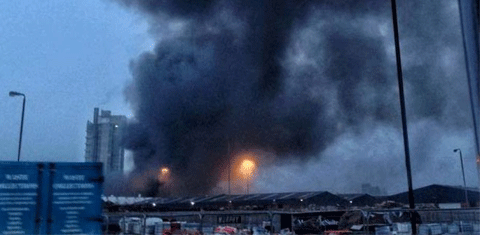Britain started to carry out first air raids in Syria hitting oil fields that Prime Minister David Cameron says are being used to fund attacks on the West, soon after British Parliament said "yes" to launching military actions against Isil.
Britain started to carry out first air raids in Syria hitting oil fields that Prime Minister David Cameron says are being used to fund attacks on the West, soon after British Parliament said "yes" to launching military actions against Isil.
Tornado bombers took off from the RAF Akrotiri air base in Cyprus just hours after British lawmakers voted 397-223 to support Cameron's plan for air strikes, a Reuters witness said. The Ministry of Defence confirmed to The Guardian that they had carried out the “first offensive operation over Syria and have conducted strikes”, after which the aircrafts returned to base safely.
As The Guardian said, the four RAF jets used laser-guided bombs to attack six targets in the Omar oil fields in eastern Syria. The area is controlled by the Islamist militant group called Daesh by British officials, using an Arabic acronym that the group rejects. The British defence secretary, Michael Fallon, confirmed that eight more jets – two Tornados and six Typhoons – were being sent to Akrotiri to join the attacks.
“We are doubling our strike force. The additional eight aircraft being sent to Akrotiri are now in the air and on their way,” he told the BBC Radio 4 Today programme. “These are the aircraft that the coalition have been asking for.”
He also added that the strikes are a very real blow at the oil and the revenue on which the Daesh terrorists depend and that more bombings are to come.
"There are plenty more of these targets throughout eastern, northern Syria which we hope to be striking in the next few days and weeks," Fallon said. He said Britain was sending eight more warplanes to Cyprus to join the missions.
The British contribution still forms only a tiny part of U.S.-led "Operation Inherent Resolve", which has been bombing Islamic State targets in both Iraq and Syria for more than a year with hundreds of aircraft. Previously, the small British contingent participated in strikes on Iraq but not Syria, reports The Guardian.
Besides the members of the USA-led anti-ISIS alliance, Russia is bombing Syria outside the coalition. Moscow and Tehran support Syrian President Bashar al-Assad, while the United States and its European, Arab and Turkish allies want him gone and back his enemies, reminds Reuters.
The debates on whether to launch bombing to Syria not only were controversial in the Parliament, but also divided the opposing Labour Party. Its leader Jeremy Corbyn starkly warned Labour MPs against backing ISIS airstrikes saying 'it is the leader who decides ', but later granted them a free vote after being humiliated by his own cabinet with its foreign affairs spokesman Hilary Benn.







